It’s been 14 years since the iconic final scene in the HBO hit crime drama The Sopranos left fans of the series pondering the fate of the beloved but extremely problematic mob boss Tony Soprano.
Following the series finale, the show’s creator and writer David Chase said at the time that he had no desire to continue or expand The Sopranos. But thankfully, he changed his mind and teamed up with his longtime Soprano’s collaborator, director Alan Taylor to take us back to Newark for the Sopranos prequel, The Many Saints of Newark.
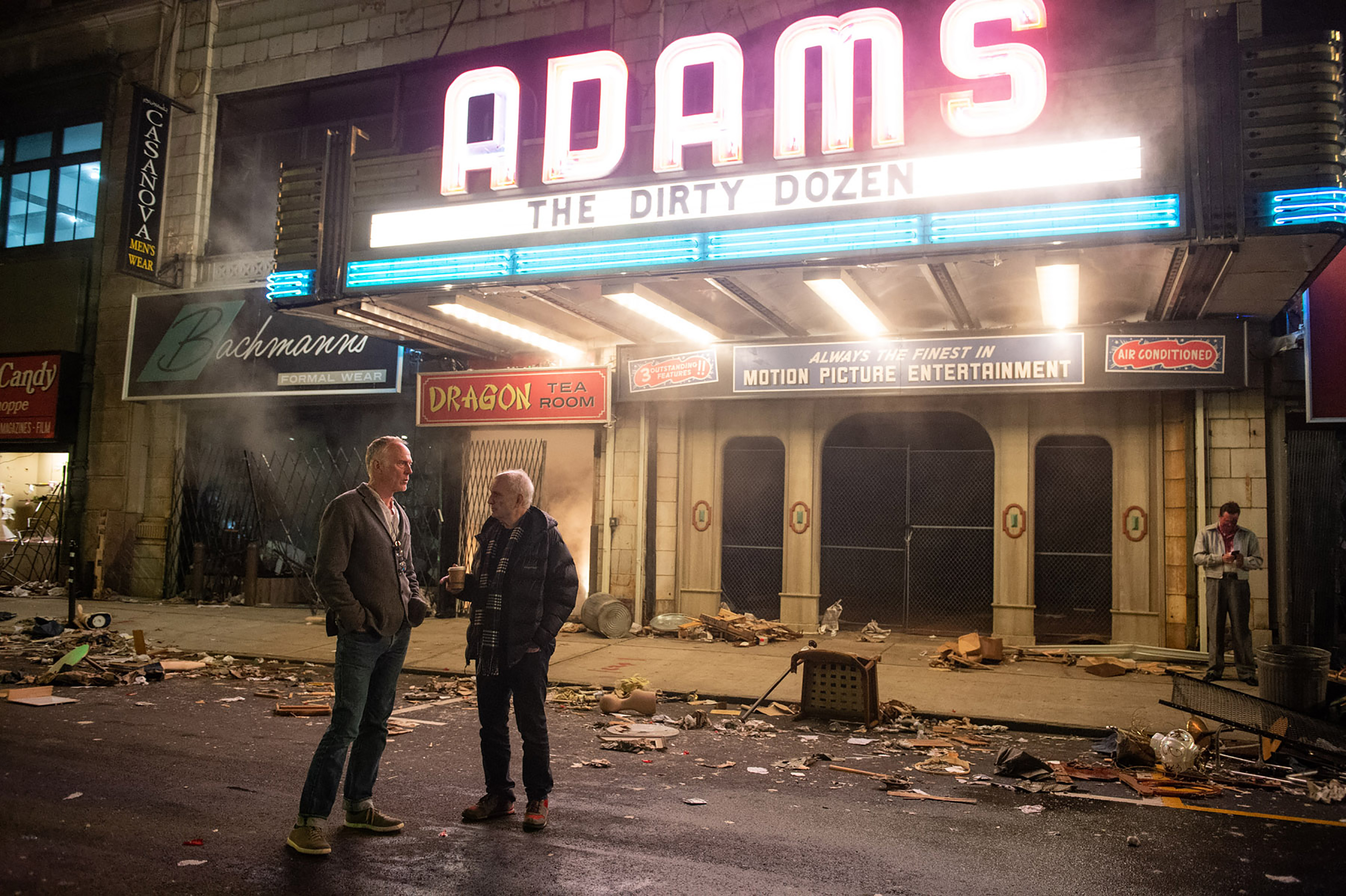
Source: Photo by Barry Wetcher / Photo Courtesy of Warner Bros. Pictures and New Line Cinema
The film serves as an origin story for a young Tony Soprano brilliantly played by the late James Gandolfini’s son Michael Gandolfini but seen through someone else’s eyes, his uncle Dickie. Instead of following around a young Tony, the story revolves around Dickie Moltisanti (Alessandro Nivola), the father of Christopher Moltisanti (Michael Imperioli), who fans of The Sopranos only knew of through story shared by Tony Soprano. We see how Dickie served as a mentor to the impressionable youth while his father, Giovanni “Johnny Boy” Soprano (Jon Bernthal), is locked up in prison. Livia Soprano, played by Vera Farmiga, struggles to raise her son while battling and denying her mental health issues, so she reaches out to Dickie for help.
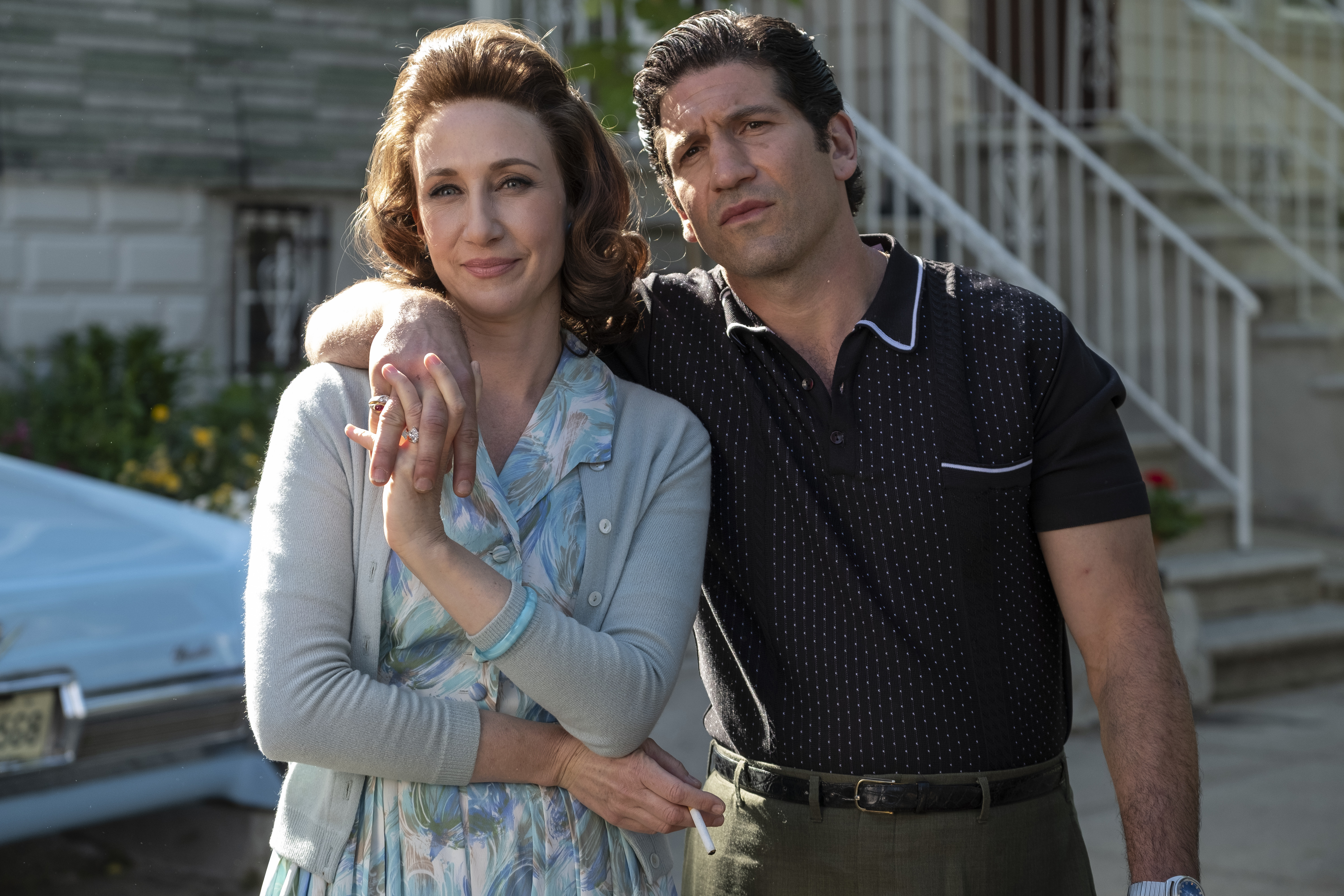
Source: Warner Bros. / L-R Livia Soprano (Vera Farmiga) & Giovanni “Johnny Boy” Soprano (Jon Bernthal)
Ahead of the film’s release Cassius Life had the opportunity to speak with both David Chase and Alan Taylor. We touched on Chase’s focus on psychotherapy, and mental health, which characters from the film and show have dealt with, the film taking place during the Newark riots, why it felt like watching a television episode rather than a movie, and of course, the legendary opening theme song from The Sopranos.
Cassius Life: One thing we truly appreciated about The Sopranos and this film, of course, is the focus on psychotherapy and mental health insecurities. Why was that aspect so crucial to you when writing the show and the movie?
David Chase: Well, probably because I have done a lot of psychotherapy myself, as a patient, not as a therapist. Or a client. That’s probably a better word. Now that I think about it, I got interested in Sigmund Freud. It wasn’t in school. I was in high school, but… maybe a freshman or sophomore, so I guess. I don’t know. I’m just interested in how the mind works and what makes people. And probably because I was insecure and I needed therapy also.
I’m just interested in how the mind works and what makes people.
CL: Interesting. A lot of the story occurs during the Newark riots, and the riots themselves are a character in the film. Why was it essential that the viewer see how each character, Harold or the DiMeo family, viewed these riots from their eyes and perspective?
DC: Well, someone had suggested… Actually, Tom Fontana had suggested to me a long time ago that it would be interesting to see a Sopranos prequel set in the past that featured Johnny and Junior as younger men. I thought it was a great idea, but I never did anything with it. But that kernel of that idea stuck with me. So the idea of doing a prequel appealed to me, and since we were going to be in Newark, I thought, well, what’s a dramatic situation in Newark? And the riots were there.
Alan Taylor: It was built into the very beginning of the conception of the movie because I know David thought… One reason he wanted to go to a prequel time frame was because he remembered that time from living there, and he had never seen it represented and wanted to explore it again.
To me, it fits right into the themes of our movie in a big way. Specifically to the movie. The big question in the movie is, are we condemned to be who we are? Are we locked into a destiny, or can we rise up and break out of the destiny? Dickie is trying to rebel against his violent father. Harold is trying to rewrite who he is and who society tells him he can be, and we see him get radicalized over the course of the rebellion and the riots and the looting. He gets changed by that. And of all the characters in the movie, he’s the only one that actually rises. Everybody else is saying, “I want to rewrite who I am.” The beautiful immigrant who comes from Italy thinks, “I’ve come to the new country. I can be whatever I want to be.” Well, no. That doesn’t work out. And it doesn’t work out for Dickie. But that story of somebody who is radicalized and wants to rewrite their own story was key, I thought.
And then it happened that we did all that stuff as carefully as we could. A lot of research went into it and so on. But we shot it before George Floyd before Black Lives Matter rose up, and then we were releasing it, after all, that, so it was sort of treacherous to see if it was going to play well or not. We just did it as honestly as we could, and we were very lucky to have Leslie Odom Jr. playing that role because he brought a kind of intelligence and gravitas to this character, so he could hold his own against Dickie.
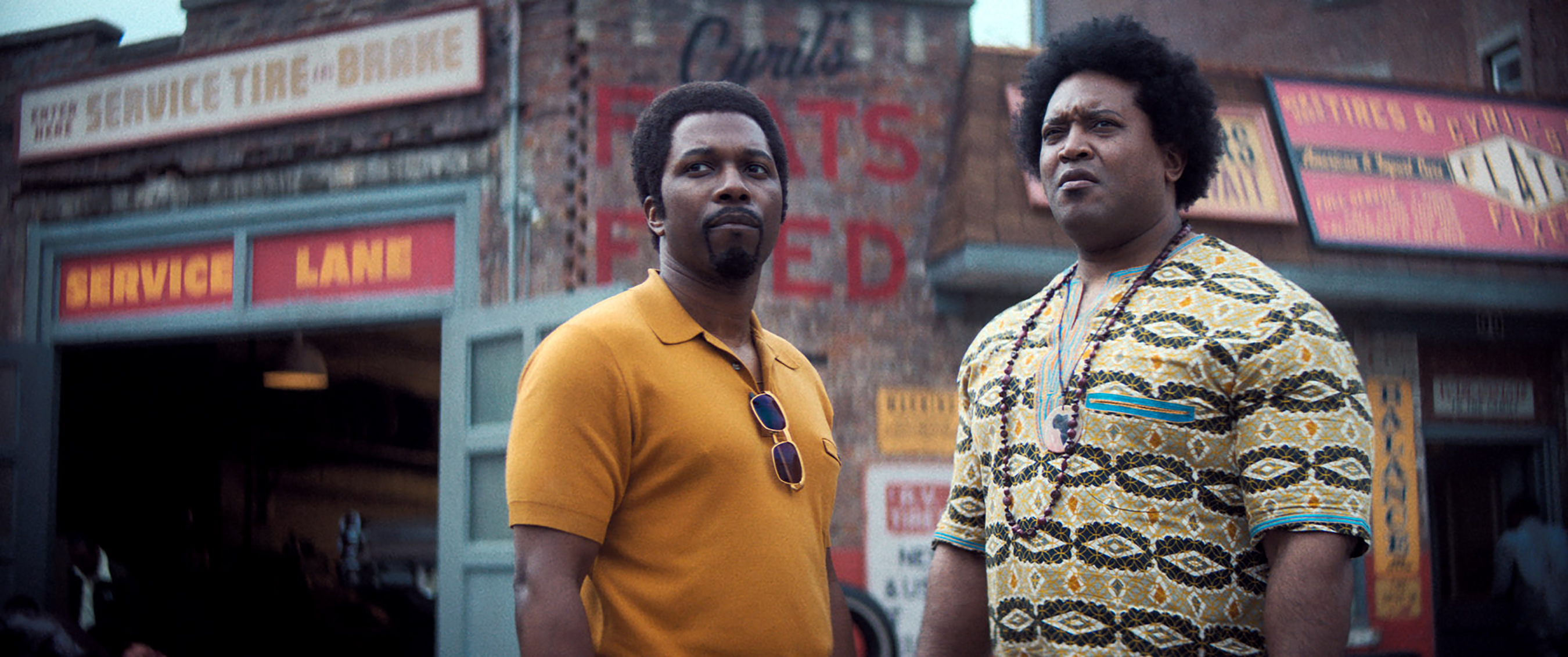
Source: Photo Courtesy of Warner Bros. Pictures / New Line Cinema
CL: Now, since you [David Chase] have said that after you finished The Sopranos show, you really didn’t have any interest in continuing that story. Which, we’re glad you continued with the prequel because we’re big fans of the show. With that said, is there a possibility that we will see something more with young Tony in the future? Can you speak about that?
The big question in the movie is, are we condemned to be who we are?
DC: Yeah, that’s possible. There’s no plan for it now, and it probably wouldn’t be for a while. It’s possible. I have other things I’m more interested in at the moment.
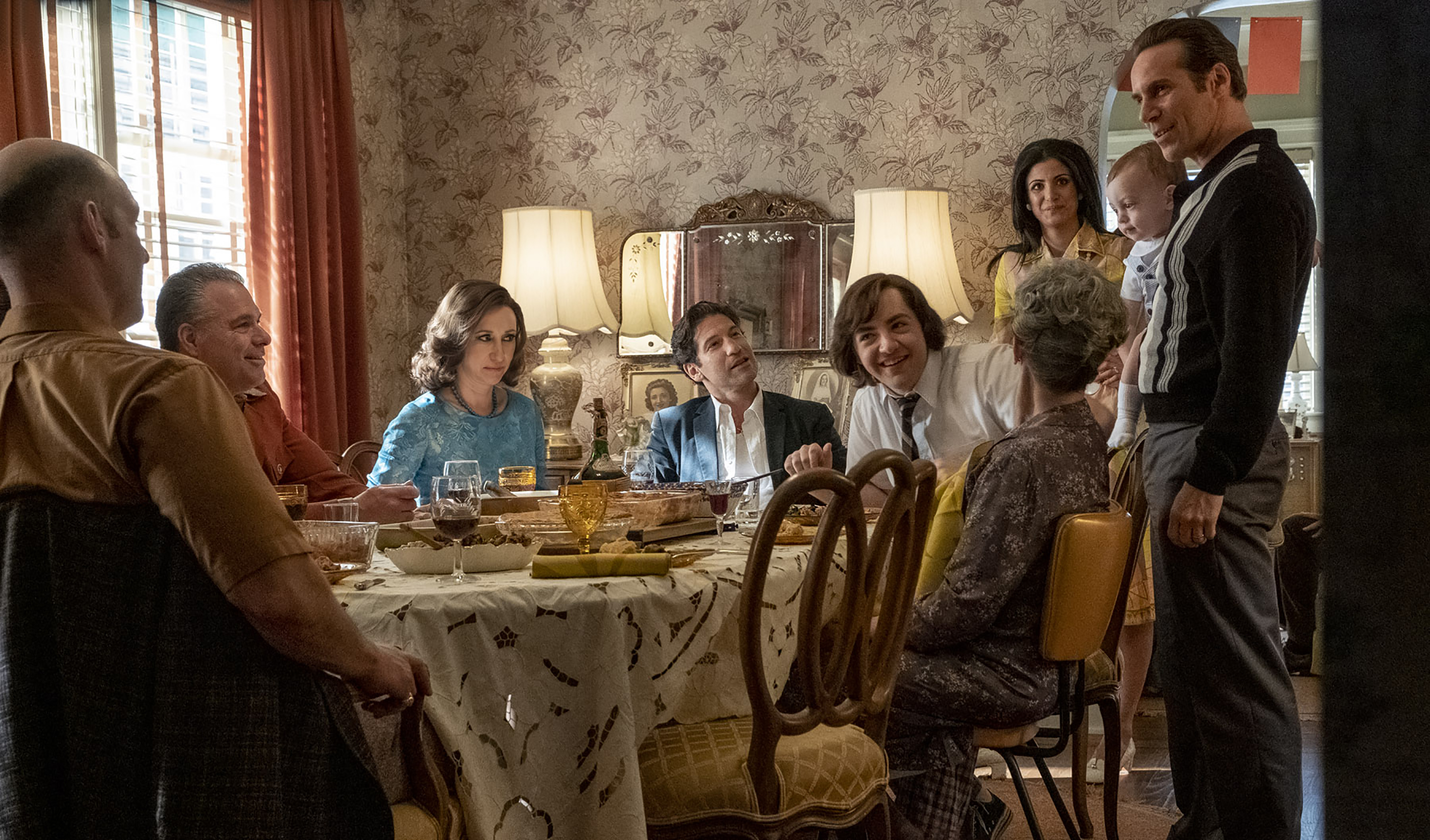
Source: Photo by Barry Wetcher / Photo Courtesy of Warner Bros. Pictures and New Line Cinema
CL: One thing I noticed about watching the film was, it really didn’t come off like a movie. We felt like we were watching a very long episode of The Sopranos, which is really cool. Was that done on purpose? Was it filmed that way on purpose?
AT: Gee, no. I’m glad you said it was good because I think there’s a structural thing about the movie that some people will notice, which is, there’s a time cut halfway through. In a way, it sort of breaks into two episodes, and we have two actors playing young Tony. We have the very celebrated Michael Gandolfini’s performance, but we also have William Ludwig playing the younger version. So in a way, you can’t get around the fact that it sort of feels like two episodes of The Sopranos, but with bigger production values.
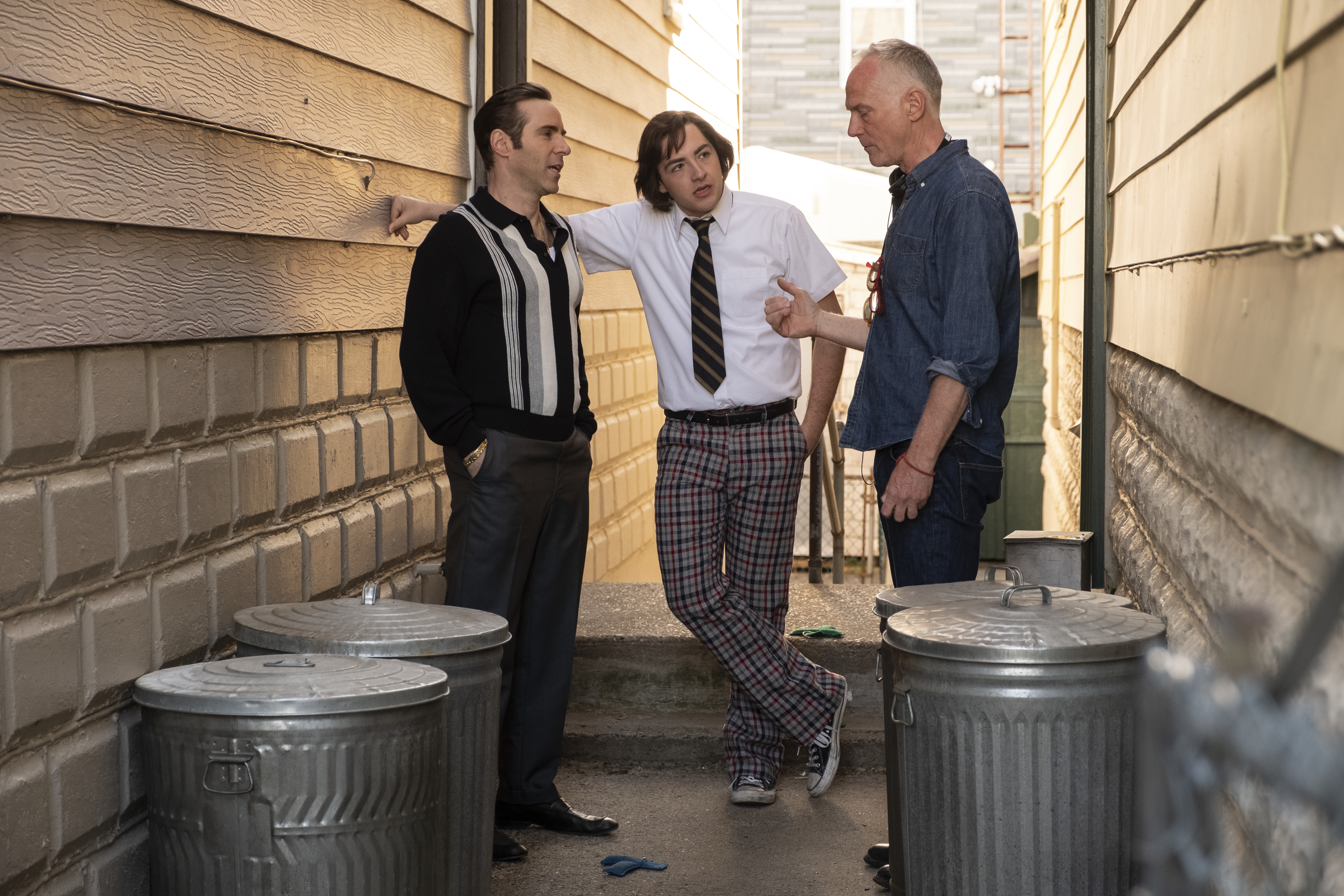
Source: Warner Bros. / L-R Dickie Moltisanti (Alessandro Nivola), Tony Soprano (Michael Gandolfini) & Director Alan Taylor
But no, when I set out to make it, I set out to think, okay, what’s the big-screen version of this? Let’s make sure we have some slightly epic scenes. Let’s make sure that we do right by the big screen. Hoping it doesn’t feel just like TV. Maybe-
CL: Well, we meant more in the sense of the feel that Sopranos always gave people when they watched it. Nothing bad at all.
AT: Trying to find continuities with the show, like the lens choices and how the camera moves and things like that. And also the music. We handled music the same way that we did in the show, which is no score, just using songs as source music. So yeah, there were a lot of things that we were trying to keep in continuity with the show.
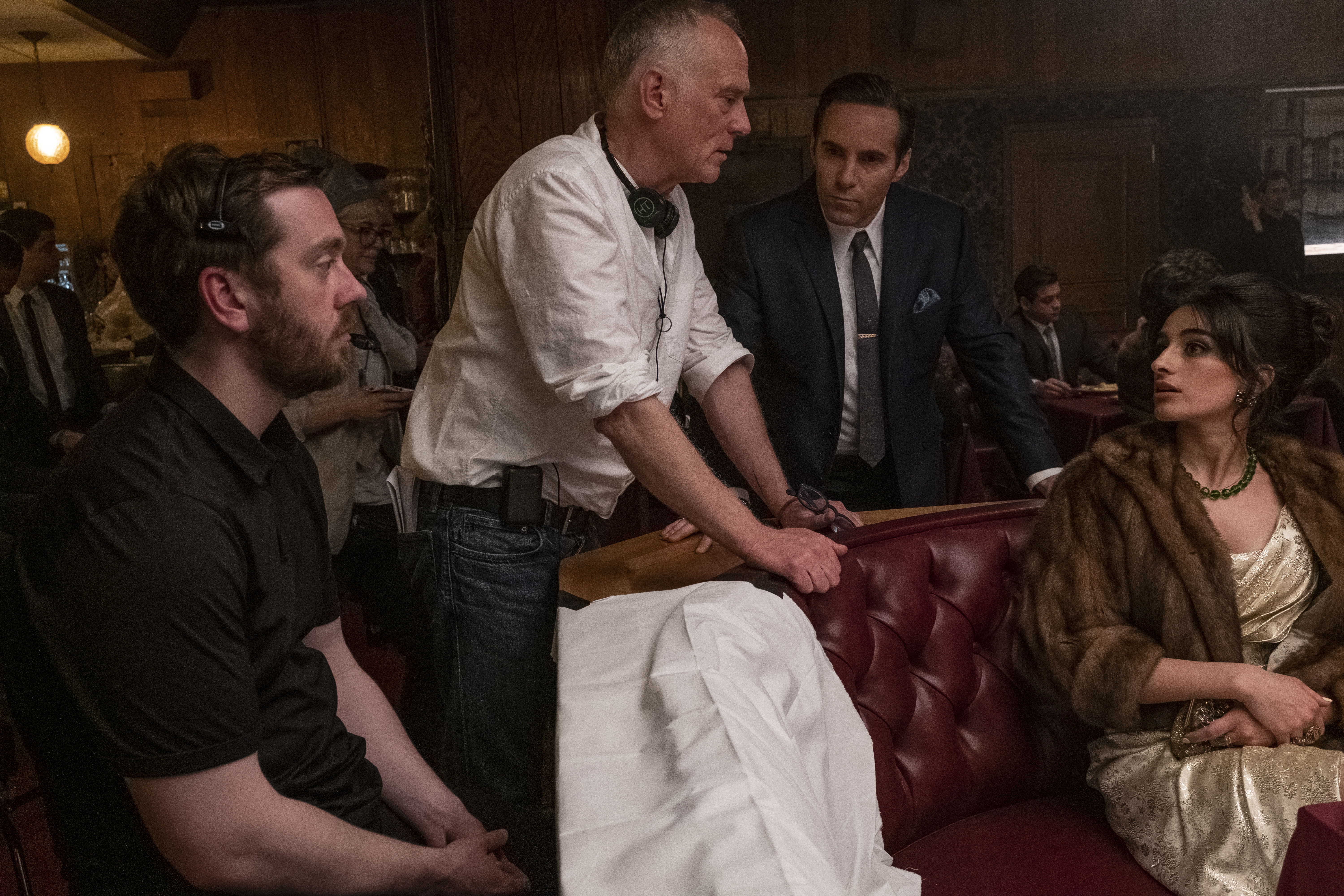
Source: Warner Bros. / The Many Saints of Newark
CL: The Sopranos’ theme song is regarded literally as one of the most iconic openings in TV lore, TV history. Where would you personally rank that as far as TV lore and the movies and things like that? Where would you rank the Sopranos theme song and opening?
DC: Pretty high. I heard that song on the radio. Los Angeles has one of the great radio stations of all time, KCRW. And I heard that song with a zillion others that are really great and expanded my whole musical horizon. I don’t think that band, A3, was really going anywhere. And I hope it helped them. I’m a little tired of it now because I worked with it for all these years, but it’s really a good song. A really good song.
AT: Good question. That was David’s idea, the song, and that was David’s idea, that montage. He liked the idea of driving backward, starting in New York and winding up in New Jersey, of the opening credits. I think there are very few that are as good as that. The ones I tend to love are ones from my childhood where it’s just gotten in my head so early that it’s like The Avengers or something. The original English one, not the Marvel one.
Where I just loved the theme song so much and loved the imagery so much. But no, it’s one of the greatest of all time. I like the one that we used on Mad Men, but it doesn’t have the oomph that this one has. And we knew from the beginning that we needed to bring that music in just for a hint in the movie somewhere because it still has such staying power.
The Many Saints of Newark is in theaters and on HBO Max right now.
Photos: Warner Bros./ The Many Saints of Newark
















